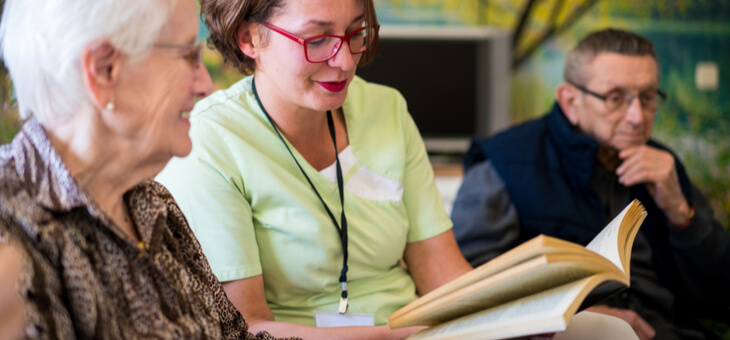Research from Flinders University has predicted a federal government decision to push back the qualifying age for the Age Pension to 67 by 2023 will significantly reduce people’s ability to contribute their free time and effort to volunteering.
Currently, around six million Australians each year volunteer for a combined 520 million hours, which is worth an estimated $17 million for the economy.
But senior business economics lecturer Dr Rong Zhu says this will plummet as the age of retirement increases.
“While examining the casual impact of retirement on the supply of volunteer labour, we see that retirement, as a discrete change in lifestyle, leads to increased voluntary work among both older Australian men and women,” says Dr Zhu.
“When we have this Age Pension reform in Australia, there will be a shrinkage of the volunteer workforce.
“I’ve found about 15 per cent of older men and 12 per cent of older women have their retirement status affected by the age of eligibility for the Age Pension.”
Read: How volunteer requirements work
Overall, the study found volunteer output would reduce by around 3 to 4 per cent as a result of raising the Age Pension eligibility age.
Volunteering not only makes a big contribution to the active functioning and productivity of vital groups but also contributes to a healthy and potentially more active retirement for older people and their families.
Volunteering broadens people’s networks and professional skills and serves as an indicator of wellbeing and social cohesion.
It also has links to the economic and health status of a nation. By volunteering, people can become more outwardly focused, which may strengthen social interactions or even reduce anxiety.
“We know volunteering makes a fundamental contribution to the active functioning of a society,” says Dr Zhu.
“Another benefit is that older people’s retirement also impacts positively on the volunteer behaviour of their family members.
“All of these are important avenues for greater personal and community wellbeing and advantages that prolonging working lives can impact,” he adds.
Regional areas to be more severely affected
Volunteers play a vital role in the social fabric of many remote, rural and regional communities. Without volunteers, many not-for-profit organisations in these communities would be unable to perform.
Raising the retirement age will severely impact these communities due to the resulting drop in volunteer hours and numbers.
Dr Zhu predicted regional areas would be hit hardest, given their reliance on volunteer services.
This included community groups providing services to the elderly and volunteer emergency services, such as the Country Fire Service.
“I’m expecting the impact might be slightly larger because volunteering is relatively more important for regional areas,” says Dr Zhu.
Read: Where you live could affect how long you live, study finds
COVID has taken its toll
Volunteering Queensland CEO Mara Basanovic says there was an 80 per cent drop in volunteering programs across Australia when the pandemic hit.
“They either closed down completely, or they suspended their programs,” says Ms Basanovic.
“We worked through the first round of COVID and almost all of those organisations came back in some way, or merged, and most of the volunteers came back, except the older cohort.
“We actually saw an increase in younger volunteers stepping up but when the Delta variant hit, it caused a lot of programs to reassess their ability to go out and meet face-to-face volunteering services.”
Read: Virus’s huge hit on volunteers
The Age Pension
More than 70 per cent of elderly people in Australia are eligible recipients of the Age Pension, and about two-thirds of pension beneficiaries receive full benefits.
When the Age Pension was introduced in 1908, the qualifying age threshold was 65 for both men and women. It was soon reduced to 60 for women in 1910.
Since then, the eligibility ages for men (65) and women (60) remained constant until July 1995, when the age threshold for women started increasing progressively at a rate of six months every two years. The Age Pension eligibility age for women reached 65 in 2014 and became identical to that for men.
From July 2017, the qualifying age for both genders started rising again by six months every two years and will continue until it reaches 67 years of age in July 2023.
In 2021, the maximum rate per fortnight is $860.60 for singles and $1297.40 for couples.
What do you think about increasing the retirement age? Do you volunteer in your free time? Please share your thoughts in the comments section below.
If you enjoy our content, don’t keep it to yourself. Share our free eNews with your friends and encourage them to sign up.

